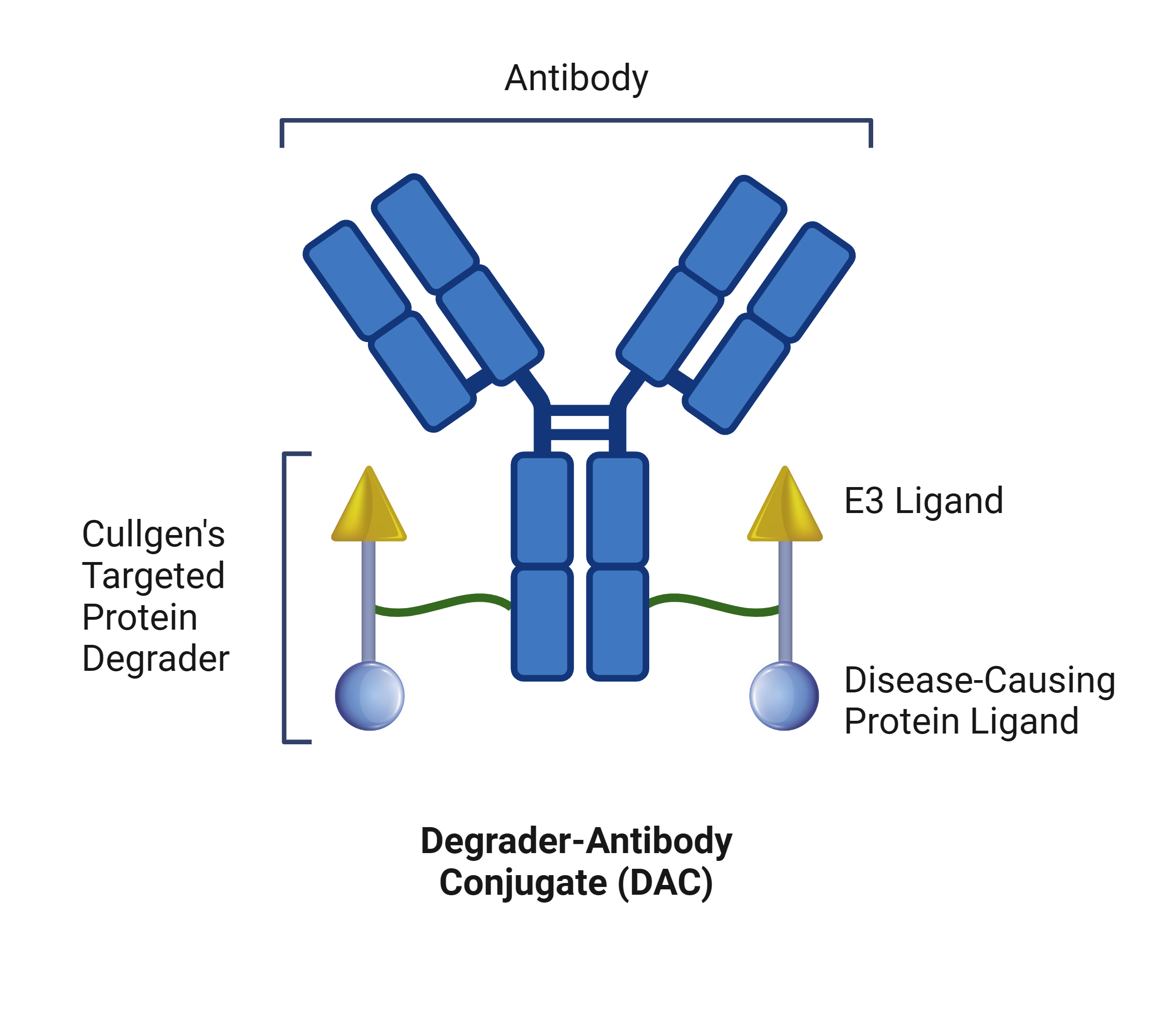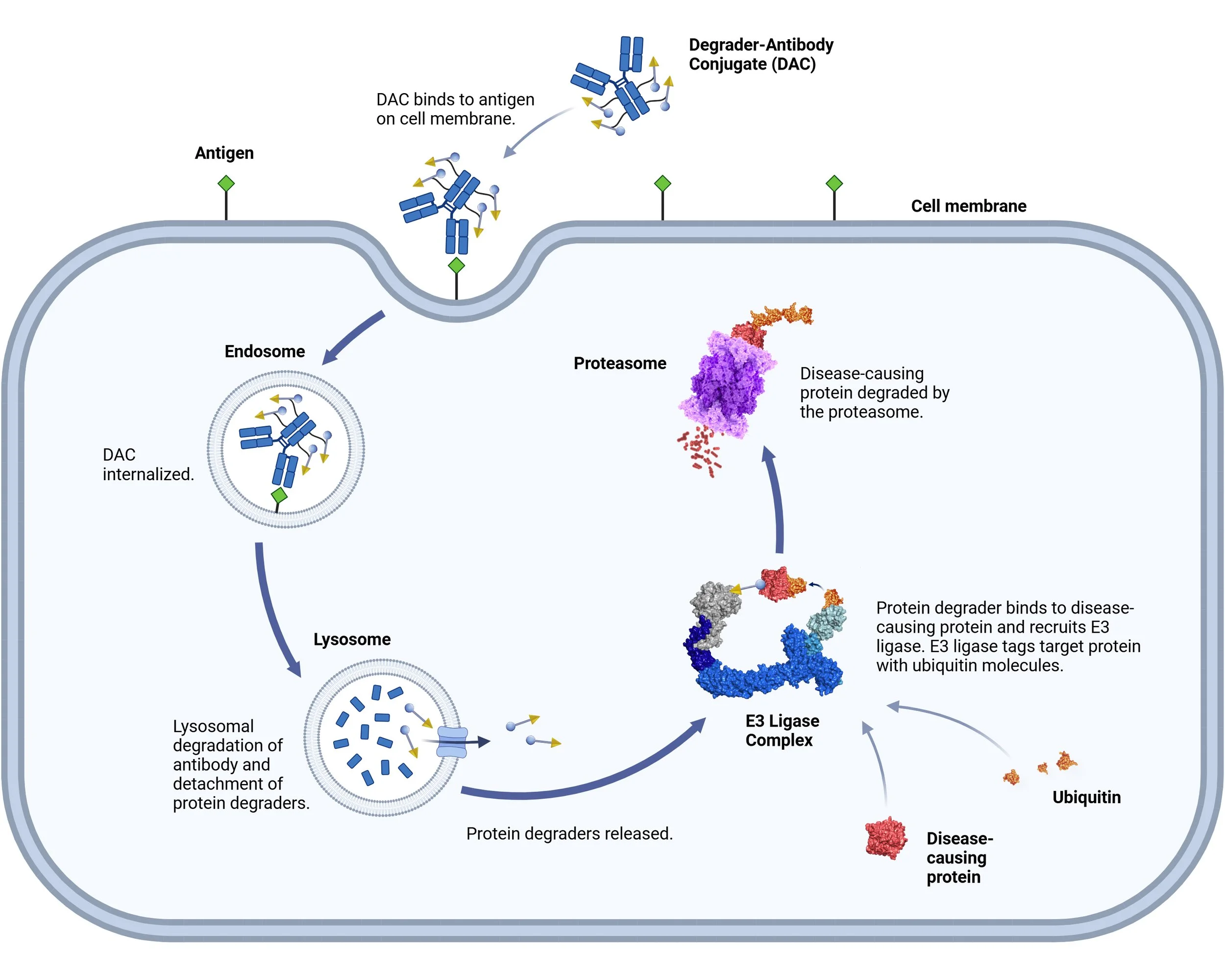
Degrader-Antibody Conjugates (DACs)
Many of Cullgen’s targeted protein degraders are designed to be delivered directly as small molecules. There are significant benefits to attaching, via a chemical linker, a degrader molecule to an antibody to form a Degrader-Antibody Conjugate, or DAC.
Antibodies are proteins produced by the body’s immune system to fight foreign invaders by binding to a molecule, known as an antigen, that is produced by the invaders. Antibodies bind to antigens with exceptionally high selectivity and affinity. When an antigen is expressed on the surface of a certain cell type, such as cancer cell, antibodies can then find and bind to those specific cancer cells.
DACs utilize the cancer cell targeting abilities of an antibody to provide pinpoint delivery of a targeted protein degrader. When used in a DAC, the antibody will be designed to target a specific antigen that is expressed on the surface the target cancer cell. Once the antibody portion of the DAC binds to the desired antigen, the DAC is internalized into the target cancer cell and releases the degrader. The degrader then targets and degrades the disease-causing intracellular cancer protein. In this way, DACs allow for degraders to be delivered directly and selectively to targeted cancer cells, minimizing the chances of off-target delivery and unwanted toxicity, while increasing the overall therapeutic index of the medicine.
DAC Advantages
The use of a degrader as a payload attached to an antibody offers several benefits over traditional antibody-drug conjugate (ADC) therapies, including:
The catalytic mechanism inherent in targeted protein degraders means that smaller amounts of a given degrader will need to be used to achieve desired efficacy levels. Many of Cullgen’s degraders are highly potent, with DC50 or IC50 values in the single-digit (or lower) nanomolar range, making them highly desirable for use as an anti-cancer payload.
In addition to being highly potent, Cullgen’s degraders are also highly specific towards a given disease-causing protein. Such increased selectivity is a desirable trait that is not available when using standard cytotoxic payloads found in traditional ADCs. By combining targeted protein degraders with antibodies, one can benefit from the selectivity and catalytic activity of degraders while also realizing the cancer cell targeting capabilities offered by antibody therapies. One of the major benefits of this combination is that DACs should provide reduced off-target toxicity and improved therapeutic index.
The use of DACs will likely reduce or eliminate many of the challenges typically faced when developing a conventional targeted protein degrader, including the need to achieve appropriate oral bioavailability, metabolic stability, and plasma binding, while also streamlining the process of optimizing protein degraders.
Figures on this page created with Biorender.com


